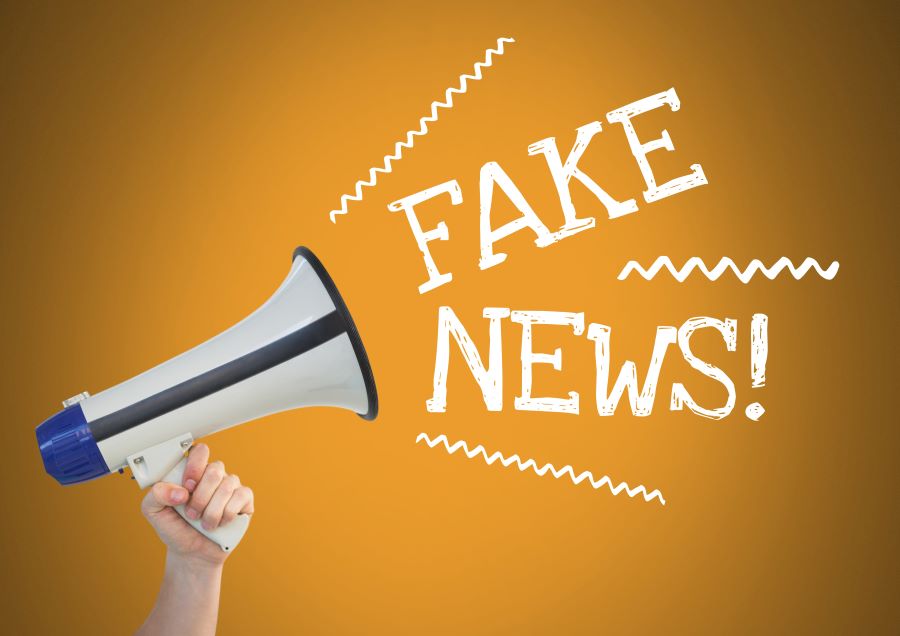Legal Action For Fake Reviews, 25 Things You Should Know
Dealing with fake reviews can be a frustrating and seemingly never-ending battle for businesses. However, fear not. Legal options are available to help address this growing problem. As experts in the field, we’re here to guide you through the process of taking legal action against those responsible for spreading false information about your business.
Legal action for fake reviews:
Legal action against fake reviews can involve defamation and libel lawsuits, FTC complaints, intellectual property infringement cases, and terms of service violations. Businesses can protect themselves by monitoring reviews, responding professionally, gathering evidence of fraud, and consulting with an attorney.

Curious about the consequences of posting fake reviews and the legal action taken against them? Continue reading to delve into the intricacies of the law and the importance of maintaining an ethical and transparent online presence. Don’t miss out on this essential information!
Contents
- 1 Lawsuits for Fraudulent Reviews
- 2 The Illegality of False Reviews
- 3 Facing Imprisonment for Bogus Reviews
- 4 Handling Untruthful Review Situations
- 5 Defamation Lawsuits Arising from Negative Reviews
Lawsuits for Fraudulent Reviews
Fake reviews, both positive and negative, can have significant effects on a business’s reputation and bottom line. In recent years, businesses have sought legal action against individuals and other businesses responsible for these fraudulent reviews.
• The Rise of Online Reviews and the Problem of Fake Reviews
Online reviews have become an essential part of everyday life. Websites like Yelp, Google, and Amazon rely on user-generated content to inform potential customers about the quality of products and services.
As both consumers and businesses recognize the importance of online reviews, a new type of problem has arisen: fake reviews. These may be positive reviews from individuals seeking to inflate their own reputation or sales or negative reviews designed to slander competitors.
In the world of e-commerce, many businesses rely on Amazon reviews to develop their customer base. A study conducted by Harvard Business School found that a one-star rating improvement could lead to a 5-9% increase in a product’s revenue. Consequently, the incentive to create fake reviews has never been higher.
• Legal Action Against Fake Reviews: Principal Methods
There are several approaches to addressing fake reviews legally. Below are some of the most common and effective methods:
1. Defamation and Libel
If a business can prove that a false review was published with malicious intent and caused harm to its reputation or finances, it may have grounds for a defamation lawsuit.
Defamation law varies by jurisdiction, so businesses should consult a lawyer to ensure a strong case. It is important to note that pursuing defamation and libel cases can be time-consuming and expensive.
2. Federal Trade Commission (FTC) Complaints
The FTC is responsible for protecting consumers from unfair or deceptive practices, including misleading advertising and other forms of online fraud. Businesses can file a complaint with the FTC against the individuals or companies responsible for the fake reviews. Infractions can result in fines or legal action enforced by the FTC.
3. Intellectual Property Infringement
Sometimes, fake reviews involve the unauthorized use of a business’s trademark or the theft of copyrighted photos or text. In these cases, businesses can pursue legal action under intellectual property law. Rights holders can seek damages for infringement and in some cases, even pursue criminal charges.
4. Terms of Service Violations
Many websites on which fake reviews are posted have terms of service to protect against fraud and abuse. By violating these terms, users open themselves up to potential legal action from the platform.
Businesses can work with the platforms on which the fake reviews were posted to have the content removed and pursue action against those responsible.
• What Businesses Can Do to Protect Themselves from Fake Reviews
1. Monitor Reviews Regularly
It is essential for businesses to stay aware of the reviews they receive. By proactively monitoring reviews, business owners can quickly detect and address fake reviews appropriately. There are online tools available to help businesses track reviews across various platforms.
2. Respond to Negative Reviews Professionally
If a business identifies a negative review they think is fake or malicious, they should still respond in a professional and polite manner. By addressing the review rationally and showcasing excellent customer service, the business demonstrates its commitment to satisfaction and can often mitigate the damage caused by the fake review.
3. Gather Evidence of Fraud
Businesses must collect evidence of fraudulent content to build a strong case against fake reviewers. This may include screenshots, URLs, or other identifying information. The evidence should be well-organized and preserved for potential legal action.
4. Consult with an Attorney
It is important to consult with a lawyer experienced in handling fake review cases before pursuing legal action. They can provide guidance on the best course of action and ensure that the business complies with the relevant laws and regulations.
In conclusion, businesses should proactively monitor and address fake reviews to minimize potential damage to their reputation and finances.
By understanding the legal options available and maintaining a professional approach, businesses can effectively confront the issue of fake reviews and ensure their continued success.
The Illegality of False Reviews
When it comes to the online world, reviews have become an essential part of the decision-making process for consumers. They want to know whether a product or service is worth their time and money and turn to reviews for help. But what happens when those reviews are fake? Are they illegal?
• The Emergence of Fake Reviews
In a competitive marketplace, businesses are always looking for an edge to stand out. One way to do this is through positive reviews. As a result, some businesses may be tempted to fabricate reviews in order to appear more reputable or to drive sales.
Fake reviews can be generated in a few different ways. Sometimes, businesses create multiple accounts and post positive reviews themselves. In other cases, they may hire individuals or companies to write and post fake reviews on their behalf.
• The Impact of Fake Reviews on Consumers and Businesses
The problem with fake reviews is that they undermine the trust consumers place in the review system. Real reviews help buyers make informed decisions, but fake reviews distort the perception of a product or service, leading to potential dissatisfaction or even negative experiences.
For businesses, fake reviews can lead to long-term damage to their reputation. They may face backlash from customers and the wider online community if caught. This can result in lost sales, boycotts, or even having their online store or website blacklisted.
• Fake Reviews and the Law
In many countries, fake reviews are considered deceptive marketing practices and are, therefore, illegal.
For example, in the United States, the Federal Trade Commission (FTC) guidelines on endorsements and testimonials make it clear that any endorsement must be honest and not misleading and that companies are responsible for any false or unsubstantiated statements made on their behalf.
In the European Union, the Unfair Commercial Practices Directive prohibits businesses from engaging in misleading marketing practices, which include fake reviews. This means that businesses found to be posting fake reviews risk facing fines and other penalties.
• Enforcement and Penalties for Fake Reviews
Law enforcement agencies around the world are taking the issue of fake reviews seriously. In recent years, numerous businesses have faced fines or legal consequences for generating fake reviews.
For example, in 2013, the New York Attorney General’s office cracked down on businesses responsible for fake reviews on sites like Yelp, Google Local, and CitySearch. The companies involved agreed to pay over $350,000 in penalties.
Similarly, the FTC has taken action against businesses for using deceptive endorsements and reviews, resulting in substantial fines and orders to cease such practices.
• Recommendations to Combat Fake Reviews
As a business owner, it is important to refrain from engaging in or supporting the creation of fake reviews. This helps maintain the integrity of online reviews and protects your business from potential legal consequences.
Here are some recommendations to prevent fake reviews:
- Foster a positive customer experience, encouraging genuine reviews from satisfied customers.
- Regularly monitor your online reviews, and report any suspicious ones to the review platform.
- Avoid working with third-party companies that promise to boost your ratings with fake reviews.
As a consumer, you can also combat fake reviews by being vigilant and discerning when reading them. Here are a few tips:
- Look for patterns in the reviews, such as similar wording or multiple reviews posted quickly.
- Check a reviewer’s profile to see if they have a history of leaving overly positive or negative reviews for multiple businesses.
- Use multiple review platforms and sources to get a more accurate understanding of a product or service.
• Conclusion
The issue of fake reviews is a growing concern for both consumers and businesses. While they may temporarily boost a company’s reputation or sales, the potential legal consequences and long-term damage to trust and credibility are not worth it.
In order to maintain the usefulness and integrity of online reviews, businesses should focus on providing excellent products and services that inspire genuine positive feedback from customers.
Conversely, consumers should remain vigilant and critical when reading reviews to ensure they are making well-informed decisions.
Facing Imprisonment for Bogus Reviews
The rise of the internet has resulted in the ubiquity of online reviews, which are oftentimes the determining factor for consumers choosing a product or service. Though purportedly an objective analysis, the impartiality of these reviews can be tainted as some businesses may resort to using fake reviews to boost their online image.
• The Legal Consequences of Fake Reviews
In order to tackle the issue of fake reviews, several countries have implemented regulations and guidelines aiming to protect consumers and maintain the integrity of online marketplaces.
In the United States, the Federal Trade Commission (FTC) enforces guidelines to ensure that online endorsements are truthful and not misleading.
Similarly, across the European Union, the Consumer Protection Cooperation (CPC) network and national authorities, such as the United Kingdom’s Competition and Markets Authority (CMA), have the power to enforce consumer protection laws to combat fake reviews.
While fines and penalties are available for violators, can posting fake reviews lead to jail time?
– United States
Under the Federal Trade Commission Act, violators may be subject to civil penalties such as monetary fines, compensation to consumers, court injunctions, or even asset seizure. However, criminal prosecution, such as jail time, is uncommon for fake review perpetrators in the United States.
In certain cases involving significant consumer harm or fraud, criminal charges may be leveled against individuals or companies involved in fake reviews.
The Department of Justice (DOJ) is responsible for such investigations and prosecutions of fraudulent online conduct, although instances of jail time specifically for fake reviews are rare.
– European Union and United Kingdom
Similar to the United States, jail sentences for posting fake reviews are not commonplace in Europe. Generally, the enforcement of regulations on fake reviews tends to focus on administrative action, such as fines, consumer compensation, or corrective measures.
Each member state, however, may differ in its approach to enforcement and available penalties, including the possibility of criminal charges.
For example, in the United Kingdom, violations of consumer protection laws, such as those regarding fake reviews, can face civil fines, damages, or an enforcement order.
However, criminal prosecution may also be pursued under the Consumer Protection from Unfair Trading Regulations 2008, although such cases lack precedence.
• Recommendations for Businesses
The advent of regulations and enforcement actions against fake reviews can have significant implications for businesses. To avoid potential legal consequences, here are some recommendations:
- Cultivate genuine reviews: Encourage satisfied customers to write authentic reviews. By providing excellent products or services, your online reputation will organically improve (and lawfully).
- Be open to criticism: Instead of suppressing negative reviews, view them as constructive feedback and growth opportunities. Addressing and resolving customer issues can ultimately enhance your brand’s reputation.
- Maintain transparency: When it comes to advertisements, endorsements, or influencer marketing, ensure that all parties disclose their affiliations and provide genuine and objective opinions.
• Conclusion
While going to jail for fake reviews might be a rare occurrence, the practice of creating or soliciting fake reviews can lead to various legal consequences, such as fines, injunctions, or even criminal charges in certain cases.
Businesses should build a genuine online reputation, promote transparency, and address customer concerns to avoid potential legal repercussions and maintain consumer trust.
Handling Untruthful Review Situations
When you receive a false review, it can be a frustrating and challenging situation. Fortunately, you can take steps to address the issue and move forward.
Step 1: Evaluate the Review
After discovering a false review, take some time to calmly evaluate the situation. Determine whether the review is truly false and harmful to your brand. Keep in mind that sometimes, negative feedback can help you identify areas that need improvement.
The Federal Trade Commission (FTC) offers guidance on identifying and dealing with fake or misleading reviews. Ensure that the review in question falls under this category before taking further action.
Step 2: Flag or Report the False Review
Once you have determined that the review is indeed false, the next step is to flag or report it to the review platform. Most platforms have specific processes or guidelines to follow when reporting fake or misleading reviews.
- Google: Follow the Google support guidelines to flag the review as inappropriate.
- Yelp: Use the Yelp report feature to report the false review.
- TripAdvisor: Follow their reporting process to report the false review.
- Amazon: Refer to Amazon’s policy guidelines and report the false review through your seller account.
When flagging or reporting the review, please provide as much detail as possible to make a strong case for its removal. Be patient, as the process may take time and may not always result in the removal of the review.
Step 3: Respond to the False Review
While waiting for the review platform to address your concerns, it is a good idea to respond to the false review professionally and politely. Doing so lets you present your side of the story and show potential customers that you take their concerns seriously.
Here are some tips on how to respond effectively:
- Be empathetic and apologize for any inconvenience the reviewer may have experienced.
- Point out any inaccuracies or false statements in the review without being confrontational.
- Invite the reviewer to contact you directly to resolve the issue.
- Show gratitude for feedback (even if it’s false) and express a commitment to improving based on customer input.
Step 4: Request Customer Reviews
To counteract the negative impact of a false review, encourage your satisfied customers to leave positive reviews. The more genuine positive reviews you have, the less significant the false review becomes in the eyes of prospective customers.
Some ways to encourage customer reviews include:
- Sending follow-up emails requesting reviews after a purchase or service experience
- Offering incentives such as discounts, freebies, or loyalty program points for providing a review
- Asking customers for feedback during in-person interactions or on social media
Remember that soliciting reviews should always be done ethically and in accordance with the guidelines set forth by the review platform.
Step 5: Monitor Your Online Reputation
It’s crucial to stay informed about what is being said about your business online. Regularly monitoring your online reputation can help you act quickly if a false review arises in the future.
Here are some tools and resources for monitoring your online reputation:
- Set up Google Alerts to receive notifications when new content is published about your business or keywords.
- Utilize social media monitoring tools like Hootsuite and Buffer to track mentions of your brand.
- Track review activity on platforms relevant to your business (e.g., Google, Yelp, TripAdvisor, Amazon).
• Additional Recommendations
In my experience, being proactive and persistent in addressing false reviews can lead to a successful resolution. In addition to following the above steps, consider these additional recommendations when dealing with false reviews:
- Document any interactions you have with the reviewer or the review platform, including screenshots and email correspondence. This may help to build a stronger case if needed.
- If the review is particularly damaging or you suspect a pattern of false reviews, consider consulting with a lawyer experienced in defamation or online reputation management cases.
- Use any negative experiences (even false ones) as opportunities to improve your business and make it more resilient to future criticism.
In conclusion, dealing with a false review can be a difficult and stressful ordeal. However, by following the steps and recommendations outlined in this article, you can effectively address the issue and maintain a strong, positive online reputation.
Step | Action |
|---|---|
1 | Verify if the review is false or spam |
2 | Contact the review platform to report the false review |
3 | Respond professionally to the review if it’s appropriate |
4 | Gather evidence to prove the review is false |
5 | Encourage positive reviews from your satisfied customers |
6 | Monitor your online reputation regularly |
7 | Consider hiring an online reputation management service |
Defamation Lawsuits Arising from Negative Reviews
Online reviews have become an important part of consumer decision-making in this digital age. Review platforms such as Google Reviews, Yelp, and TripAdvisor have turned the tables and given the power to consumers, allowing them to praise or condemn businesses and services at the click of a button.
However, this power comes with its share of responsibilities. One of the significant concerns people have while leaving a review is whether they can get sued for defamation for a bad review.
• Understanding Defamation
Defamation is a legal term that refers to the act of knowingly and maliciously spreading false or misleading information that harms the reputation of an individual or a business. Defamation laws vary between jurisdictions, but in general, there are two types of defamation: libel (written) and slander (spoken).
In the context of online reviews, libel is the most relevant form of defamation.
For a statement to be considered defamatory, it must fulfill the following criteria:
- The statement is false.
- The statement is published or communicated to a third party.
- The statement causes damage to the subject’s reputation.
- The person who made the statement did so negligently or maliciously.
It is crucial to note that truth is an absolute defense to a defamation claim, meaning that if the review you wrote is true, it cannot be considered defamatory.
• Distinguishing Between Defamation and Opinion
To avoid potential defamation lawsuits, it is essential to understand the difference between a defamatory statement and an opinion. The United States Supreme Court has held that opinions cannot be defamatory, as they are protected by the First Amendment to the U.S. Constitution, which guarantees the freedom of speech.
So how can you distinguish between a defamatory statement and an opinion in a review? The crucial factor is whether the statement can be proven true or false. By its very nature, an opinion is a subjective belief or viewpoint that cannot be proven true or false.
Here’s an example: If you write a review that states, “I believe the customer service at XYZ Restaurant is terrible,” your statement is an opinion because it cannot be proven true or false.
On the other hand, if you claim that “XYZ Restaurant has been fined multiple times for health code violations” when it is not true, it could be considered a defamatory statement.
• How to Write a Bad Review Without Facing Defamation Lawsuits
While the fear of a defamation lawsuit may be daunting, it is essential to remember that truthful reviews are legal and valuable to other consumers. Here are some tips to help you write a bad review without getting sued for defamation:
– Stick to Facts and Be Honest
Honesty is the best policy when it comes to writing reviews. Ensure that the statements you make are accurate and based on your personal experience. If you’re going to mention any specific incidents, substantiate them with evidence or proof, such as photos or documents.
– Keep It Objective
Focus on the facts and avoid making personal attacks or derogatory remarks about the business or its employees. Instead, describe the situation and explain why you were unsatisfied with the products or services you received.
– Avoid Exaggeration
Be careful with the language you use in your review. Avoid exaggeration and hyperbolic statements, as they might be interpreted as defamatory if they are false and damaging.
– Edit and Review
Before posting your review, take some time to edit and review it for any potential defamatory statements. Ensure you’ve followed the abovementioned guidelines to reduce the chances of facing a defamation lawsuit.
• Conclusion
In summary, you can get sued for defamation if your bad review contains false and damaging information about a business or an individual.
However, by sticking to the facts, being honest, remaining objective, avoiding exaggeration, and reviewing your statements, you can minimize the risk of potential legal trouble and still share your valuable opinion with other consumers.
Remember that online reviews serve as a useful tool for consumers to make informed decisions. A truthful and fair review can help others make better choices and encourage businesses to improve their products and services.
Question | Answer |
|---|---|
Can you get sued? | Yes |
Under what conditions? | When the review contains false statements that can harm the reputation of the business or individual |
How to prevent it? | Ensure your review is based on facts and your personal experience, and use language that avoids accusing individuals or businesses of wrongdoings without evidence. |






